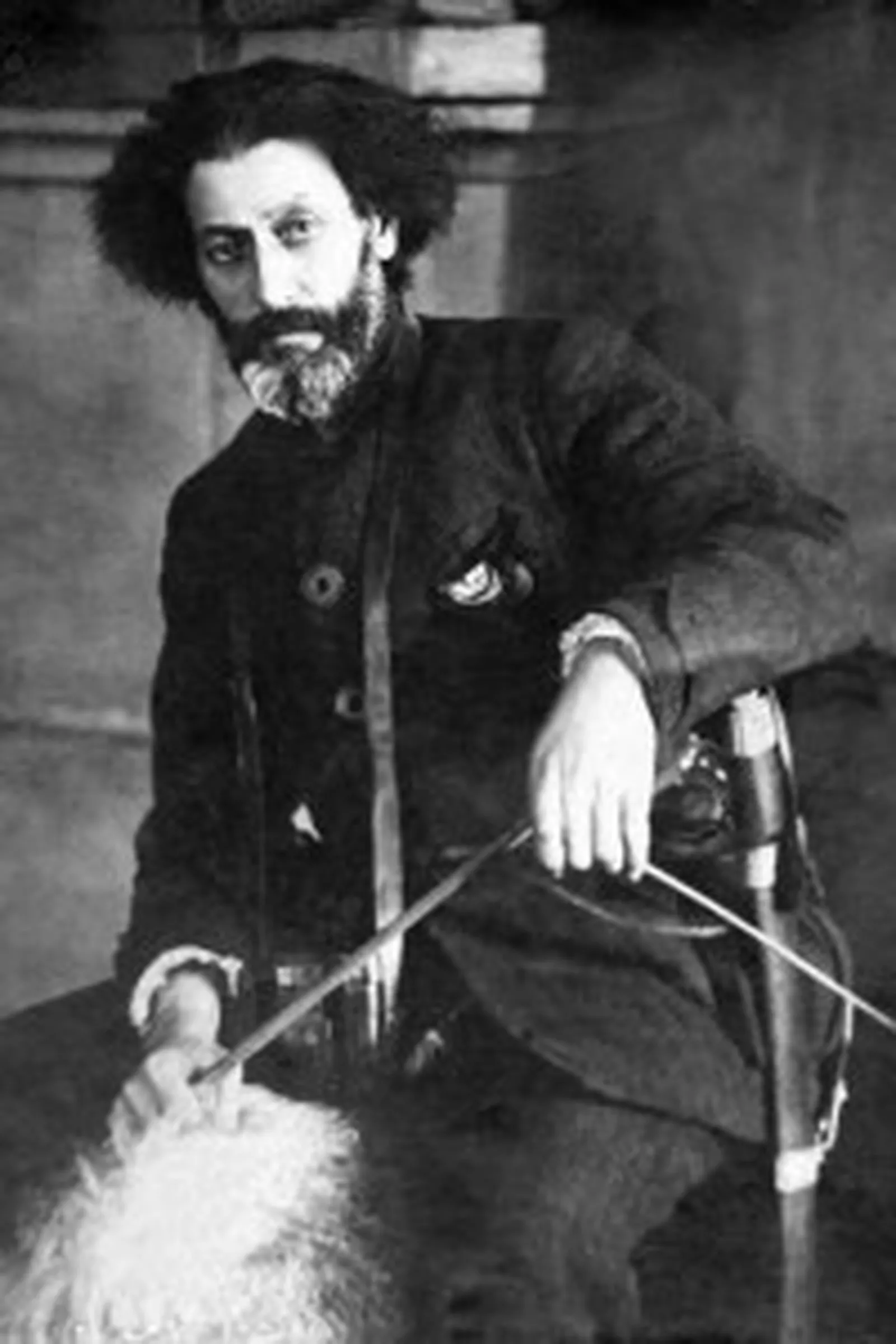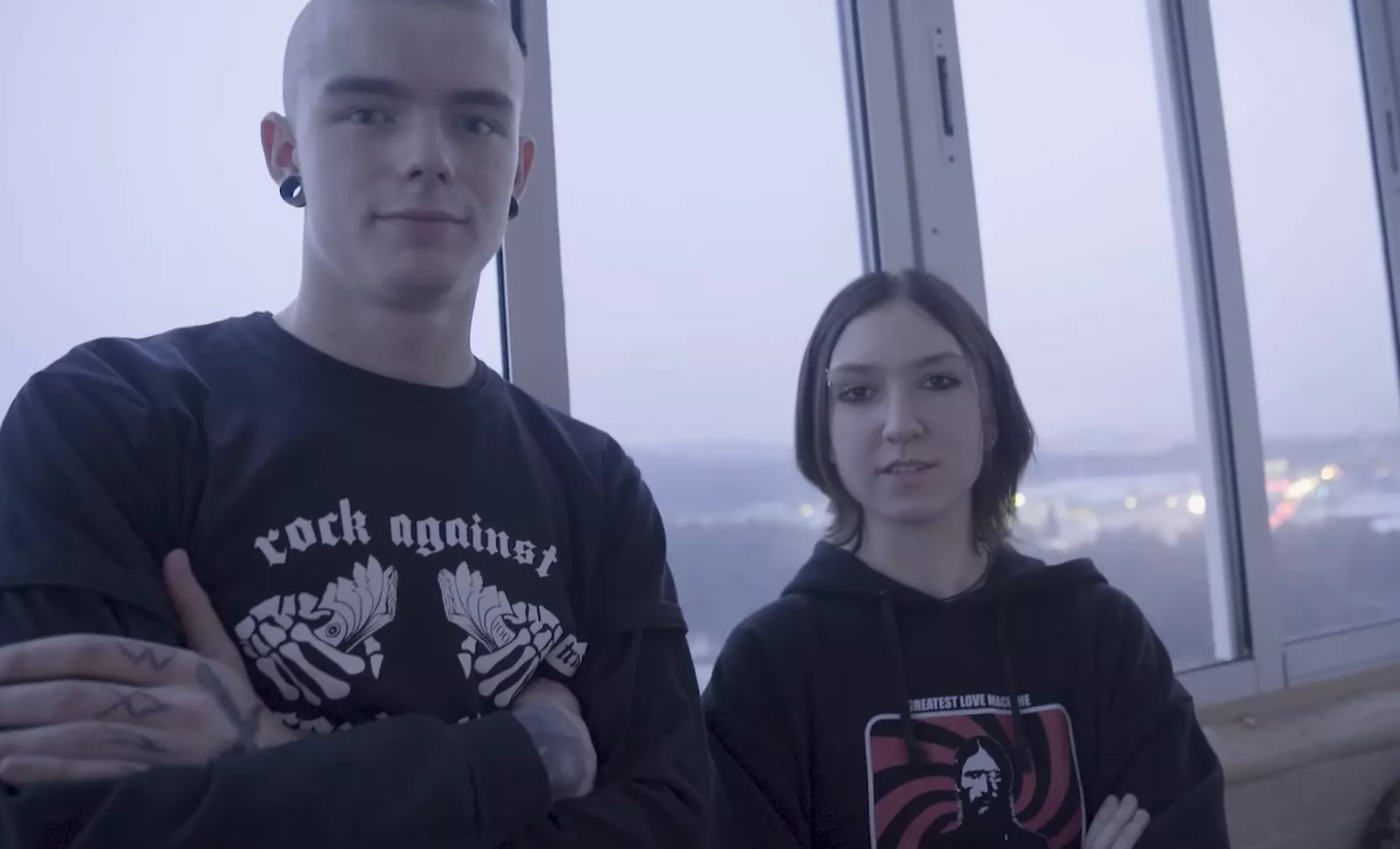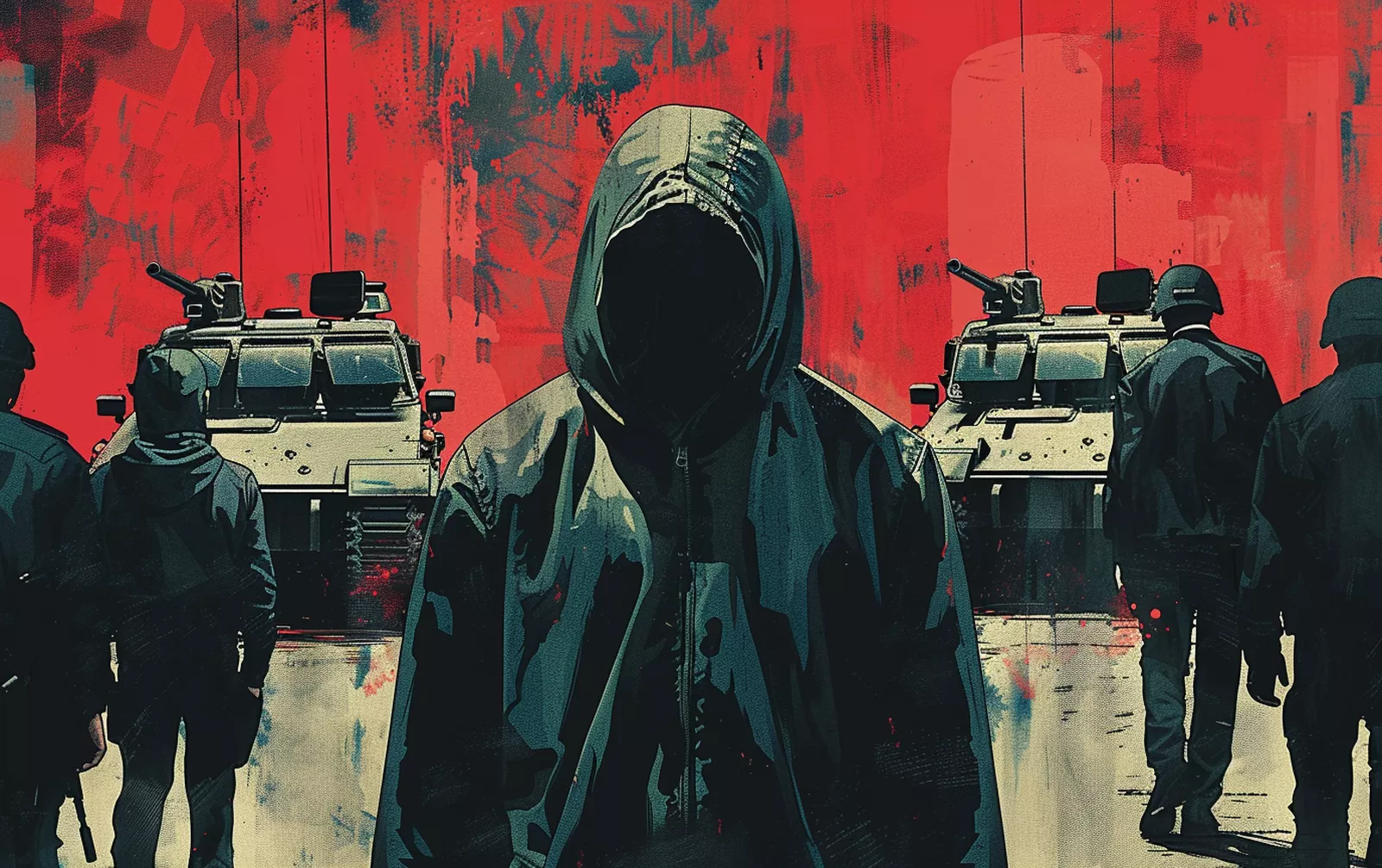English translation of the text of the interview we gave to Discourse magazine on 15.02.2024.
The Anarchist Black Cross has been helping activists facing political persecution since the times of Tsarist Russia. In the 20th century, this organization spread around the world, and in Siberian Irkutsk it appeared in 2010 against the backdrop of growing authoritarianism in the country, but after a few years it stopped its activities. After the full-scale invasion of Ukraine and increased repression, ABC members decided to resume their work.
We talked to members of ABC-Irkutsk about the prospects for the anarchist movement in Russia. In the interview with Discours samizdat, the activists tell us how the anarchists plan to fight apathy, general distrust and nihilism of the population, who the collective supports and who it will not help under any circumstances, how to direct people to social activities instead of completely withdrawing into everyday life, and what the anarchist community in the city will do in the event of the collapse of the regime.
History of Anarchist Black Cross
At the beginning of the 20th century, the Political Red Cross was established in Tsarist Russia. It helped anarchists and revolutionary socialists who were sent to exile and prison. Later it split and the Anarchist Red Cross was created, which ceased to exist after the 1917 revolution, when after the amnesty there was no need to help political prisoners. However, as the Bolsheviks strengthened and repression grew, the initiative resumed its work, changing its name to the Anarchist Black Cross. Later the offices of the ABC were moved to Berlin, but in the 30s the organization ceased its activities. At the end of the 60’s the ABC group was established in England, in the 80’s the North American section appeared. Today there are many ABC groups all over the world, maintaining communication and cooperation.
ABC-Irkutsk was founded in 2010. It was influenced by the rise of repressive actions and the growing authoritarianism of the Putin regime. The group has worked to support people who have faced criminal prosecution because of their protest activities. For example, ABC-Irkutsk then supported an anti-fascist who used self-defense against a known Irkutsk neo-Nazi.
In 2014, the ABC-Irkutsk group suspended its activities. But in 2022, after the start of the full-scale invasion of Ukraine and the ensuing increase in repression, we decided to resume work.
Existence of an anarchist community in Siberia is a heritage of revolutionary past.
 Nestor Kalandarishvili was a revolutionary activist, anarchist, and one of the leaders of the partisan movement in Eastern Siberia during the civil war.
Nestor Kalandarishvili was a revolutionary activist, anarchist, and one of the leaders of the partisan movement in Eastern Siberia during the civil war.
Tsarist Russia exiled all undesirable people into colonized Siberia, including many rebels and revolutionaries. The Soviet Union continued the tradition, using lands far from Moscow as sites of forced labor and imprisonment. Most people did not get to this region by chance. Bakunin and Kropotkin spent a lot of time in Siberia, Nestor Kalandarishvili was active in Irkutsk. Also, there are many indigenous peoples living here who find it difficult to associate themselves with the imposed “Russianness”, and our remoteness from the capital creates contradictions that make us search for answers to questions about identity and belonging to a state whose center many people have never even seen. In part, anarchism provides the answers we are looking for.
ABC-Irkutsk on key issues, tasks and goals of the anarchist movement suggests the anarchists movement
We can point out the following issues that are most serious for us:
- Putin’s regime, in full swing, with a broad apparatus for suppressing dissent and protests at home and abroad (Belarus in 2020 and Kazakhstan in 2022-2023 come to mind).
- Political and social context of apathy and general distrust, pessimism and fear, nihilistic mood. There is a culture of rebellion in our history, but now it is scuffed and suppressed. It is necessary to revive it, but it is not easy, all this affects the ability to organize within the population.
- Despite the vast experience of political and social movements across the country over the past 30 years, Russia has not yet succeeded in building a strong libertarian movement with a sustainably developed infrastructure and the prospect of supporting and organizing social and political change in the country. There is a serious problem with the lack of established communication with comrades in Ukraine; there are not enough people right now, they are highly scattered, there is a lack of cohesion, there are few places to gather, to form collectively, to organize; there is a lack of infrastructure that would help people get on their feet and cover basic needs, while guiding them to active collective activity instead of loneliness, individual problem solving and complete withdrawal into ignorant mundane routine.
- Strong influence of capitalist and patriarchal mentality. In our activities we often reproduce patterns and elements of this system, which undermines our efforts. There is a lack of another value system, a revolutionary culture that is close to and accessible to the majority of people. Socialist values have been strongly discredited among people as a result of the events of the 20th century.
- Lack of understanding of all critical problems in the country and specifically in different regions. This prevents the formulation of a good strategy and program for a potential movement.
One of our main tasks now is to actively support people organizing against the regime. We are raising funds for anarchists and anti-fascists persecuted for their beliefs, as well as anti-war activists who do not support hate ideology, sharing information about repression, and financially supporting the local anarchist community.
We can’t speak for the entire movement, but the short-term perspective we see now is as follows: for comrades in the Russian Federation, the first priority is to survive, not to get caught, and to stay free. At the same time, they should organize themselves, accumulate forces, build regional, interregional and international connections, and engage in resistance to the regime and war, balancing the ratio of risk and result. For people outside the Russian Federation the goal is to gather, organize and establish a clear and serious work to prepare for the fall of the regime and following political events in the post-Soviet space.
Because many comrades are not in Russia for various reasons, a necessity to coordinate abroad presented itself.
In the past, the main need for people in emigration was to land, settle down, get oriented, but now, in our opinion, the first priority should be to find opportunities to support the struggle of comrades left in Russia and to establish contact and interaction with comrades in Ukraine, Belarus and their initiatives.
At the moment, the Russian anarchist movement is not very organized. There is a set of groups and collectives acting in a fragmented way and without a unified agenda. This has been influenced by past conflicts and splits. Therefore as usual the creation and development of mechanisms and structures that work to resolve conflicts within the movement, as well as to bring people together, remains an important task.
Accumulation of experience in organizing, living and adapting oneself in unusual circumstances are important processes and exposure for everyone who fights against the regime.
It is necessary to reflect on our attitude to the tasks of social change in Russia and what place each of us should take personally and organizationally.
For the most part, the emphasis of broader movement has been on media work and online agitation rather than direct action. This is due, of course, to the great threat of repression and being physically outside the country. But still, the activity should not stop there, we see the need to find new approaches and tactics.
How did the work of the local ABC chapter changed after 2010s and what keeps us going
The level of repression has increased significantly since the 2010s, activities to support political prisoners are now more risky. Our resources, both material and human, are severely limited. Under these circumstances, we raise money and provide assistance to those in need. Taking into account all the difficulties we face, our activities can be considered quite successful, although our group still has a lot to develop and think about.
Another big change is that the formally organized anarchist movement has disintegrated, it split up, the remainder eventually went into exile and regrouped. At the same time, the number of people involved in projects and collectives dropped drastically, and security standards rose considerably.
In hard times, the demand for our activities increases. Realizing this, the number of people who need support is what motivates best. Besides, we started our political work not in 2022, but at the end of the 2000-s, when the situation in the country was very different.
We know the regime is not going to last forever, and we have a responsibility to make our modest contribution to its downfall.
It would be criminal of us to abandon the struggle now, when many new opportunities and challenges are opening up.
On similar groups, support of activists and whom we are not going to support
Among projects similar to ours we can recall the “Solidarity Zone”, they support anti-war prisoners all over Russia, including in our region. But what distinguishes us from other projects is our clear ideological component and the fact that we do not focus solely on supporting political prisoners. We have other tasks: helping anarchist projects in the region, rethinking the concept of justice, preventive work with people who could potentially be repressed.
We try to interact with different people. For example, we supported a woman who was tried for an article about fake news in the context of the war. She is far from being an anarchist, just blogging in social media about the problems of the small town she lives in. A lot of these cases go unnoticed, and people don’t even know that there are groups that can provide support.
We find it important to support such people, because it also works as our political propaganda: of all existing organizations, it was the anarchists who came to help.
Although, perhaps, we do not notice many projects. Some groups and comrades act quietly and “keep a low profile”.
Right now we have only one case — the “Chita” case. There are three people from Chita in it, and several people fined in Vladivostok and Khabarovsk. Two of the defendants, Lyubov Lizunova and Sasha Snezhkov, are in prison. We have encountered a lot of difficulties in the course of this case, which we cannot disclose yet.
 Lyubov Lizunova and Sasha Snezhkov who are accused of «justifying terrorism»
Lyubov Lizunova and Sasha Snezhkov who are accused of «justifying terrorism»
Our most successful case, and also the only one completed after the reorganization of the group, is the Krasnoyarsk Case. Its defendants received suspended sentences on trumped-up charges of robbery.
We will not support straight up neo-Nazis and other adherents of hate ideologies, whose actions led to deaths.
That is, if we were approached by NS/WP supporters (who are also now standing against the regime), we would refuse them even if they had killed Solovyov — famous regime propagandist. We consider all other situations case by case.
On the prospects of anarchist movement in Russia
It seems that in the time since the war began, many political activists of different stripes have begun to notice that states do not give us security and certainty for the future. They see that anywhere in the world, history echoes itself time after time. The state is killing us. This is why anarchist ideas have a great advantage over the rest of the political and anti-political ideas. Because they all in one way or another create the state or something that will lead to the state in the near future.
Also, many anarchist:cists have ended up abroad and can coordinate. Have gatherings and conventions (like in the good old days), create something in common.
Ideally, the perspective of the anarchist movement in Russia is to influence the course of events in the scenario of a revolution or other upheaval in the country through direct participation and the creation of grassroots social self-administration structures as the basis of political life. In such a prospect we need a lot of people and strong organizations.
If Putin’s regime falls — and maybe even sooner — the balance of power will change and other neighboring regimes will find themselves in a precarious position.
We have to prepare ourselves, strenghten connections and consider the necessity of people uprisings in neighboring countries, for example in Belarus.
The more difficult part of the future prospects of the anarchist movement is the period during and after the fall of the regime. There are many difficult questions to which answers are being sought and developed — for example, the decolonization of regions, the possibility of civil military conflicts, the intervention of state and corporate forces in a situation where they, too, obviously have big interests.
On necessary support
The most difficult thing in Irkutsk (and many other Siberian cities) is to find a lawyer willing to take on the case of anarchists and/or anti-war activitsts. So we alwyas look for contacts of good lawyers in Siberia.
We also collect donations for legal fees and other support, but because of the repression, money is raised through cryptocurrencies or solidarity events.
If people are outside the Russia, you can organize a solidarity evening with writing letters to political prisoners and raising money for support.
We are doing this because we want to live in a free country. Sooner or later.

